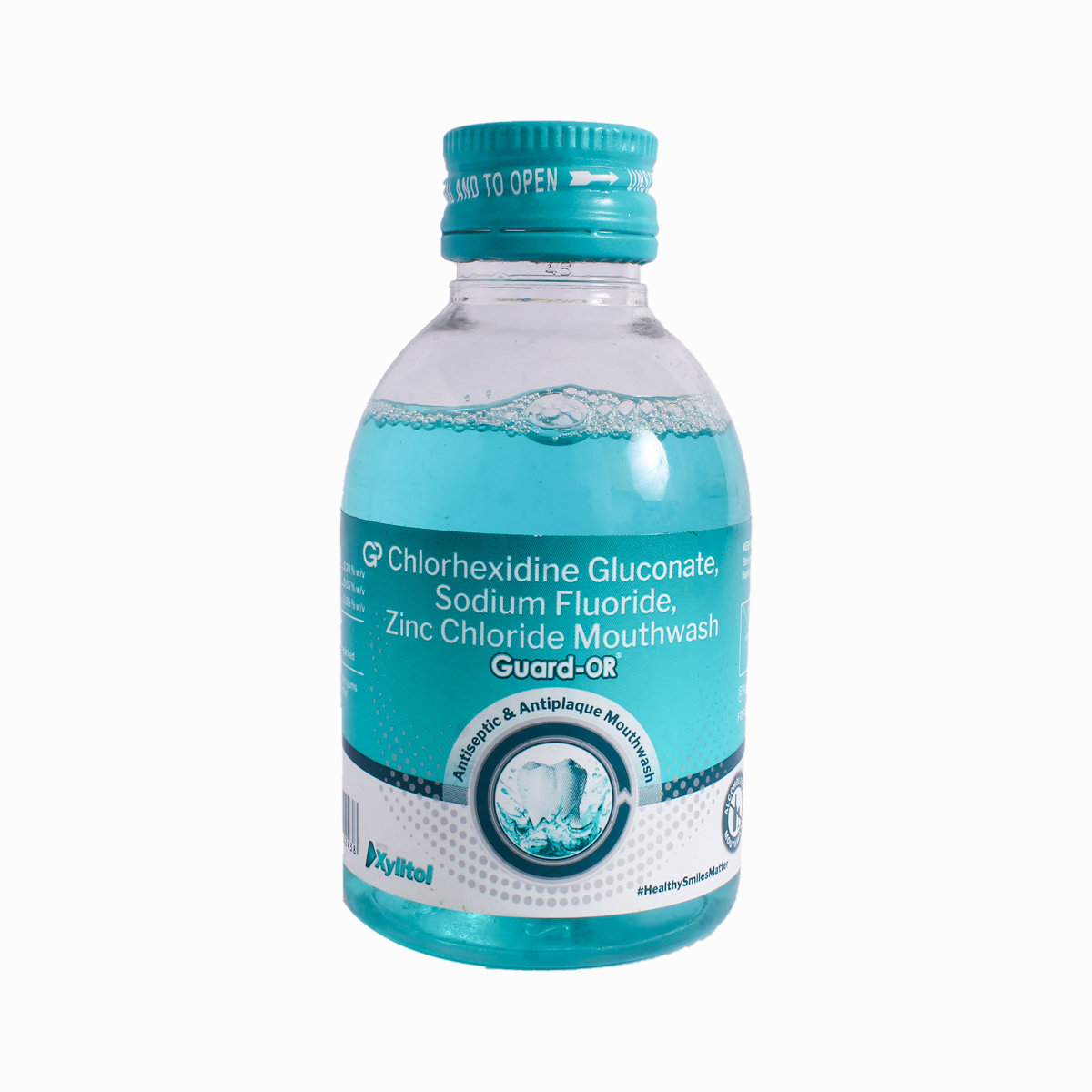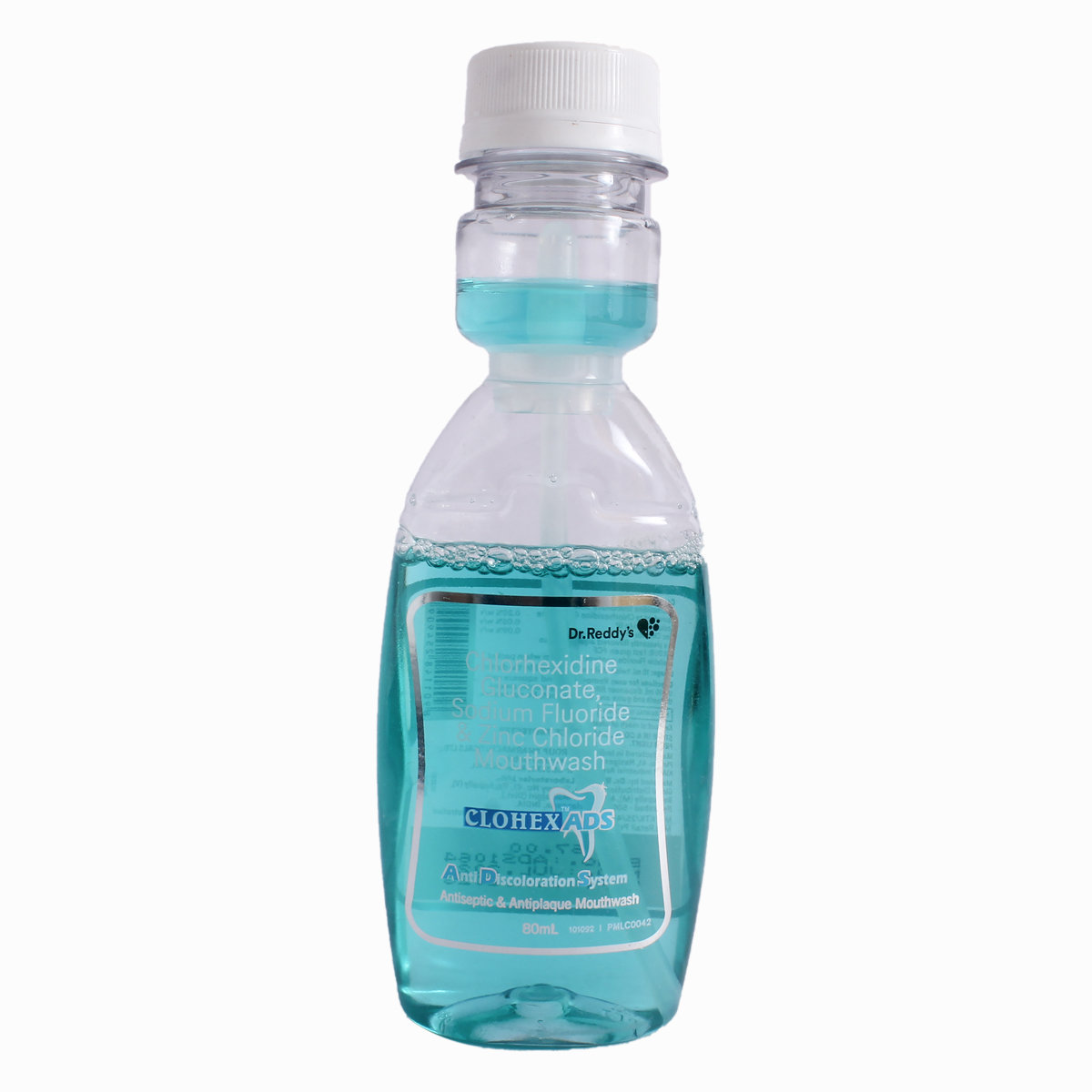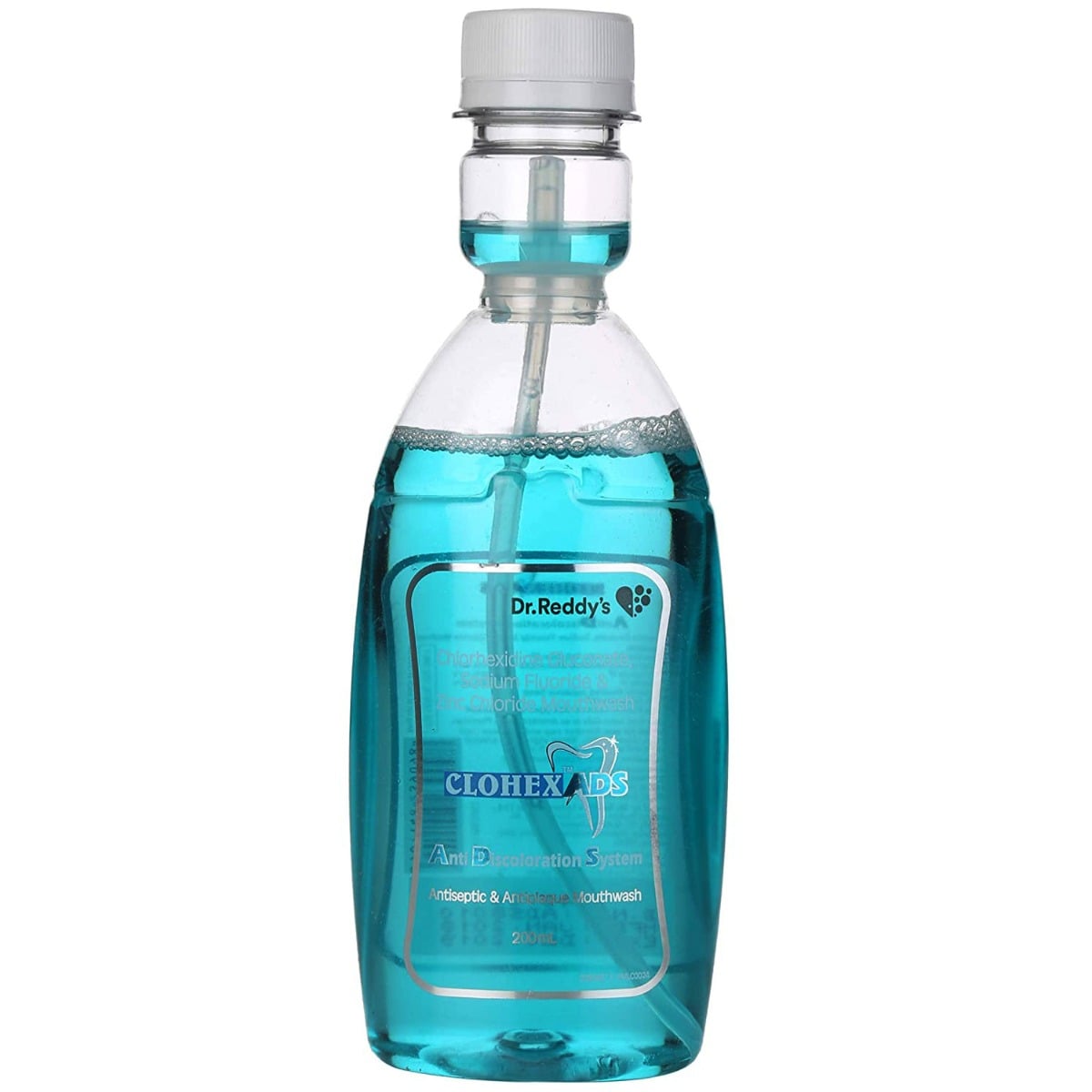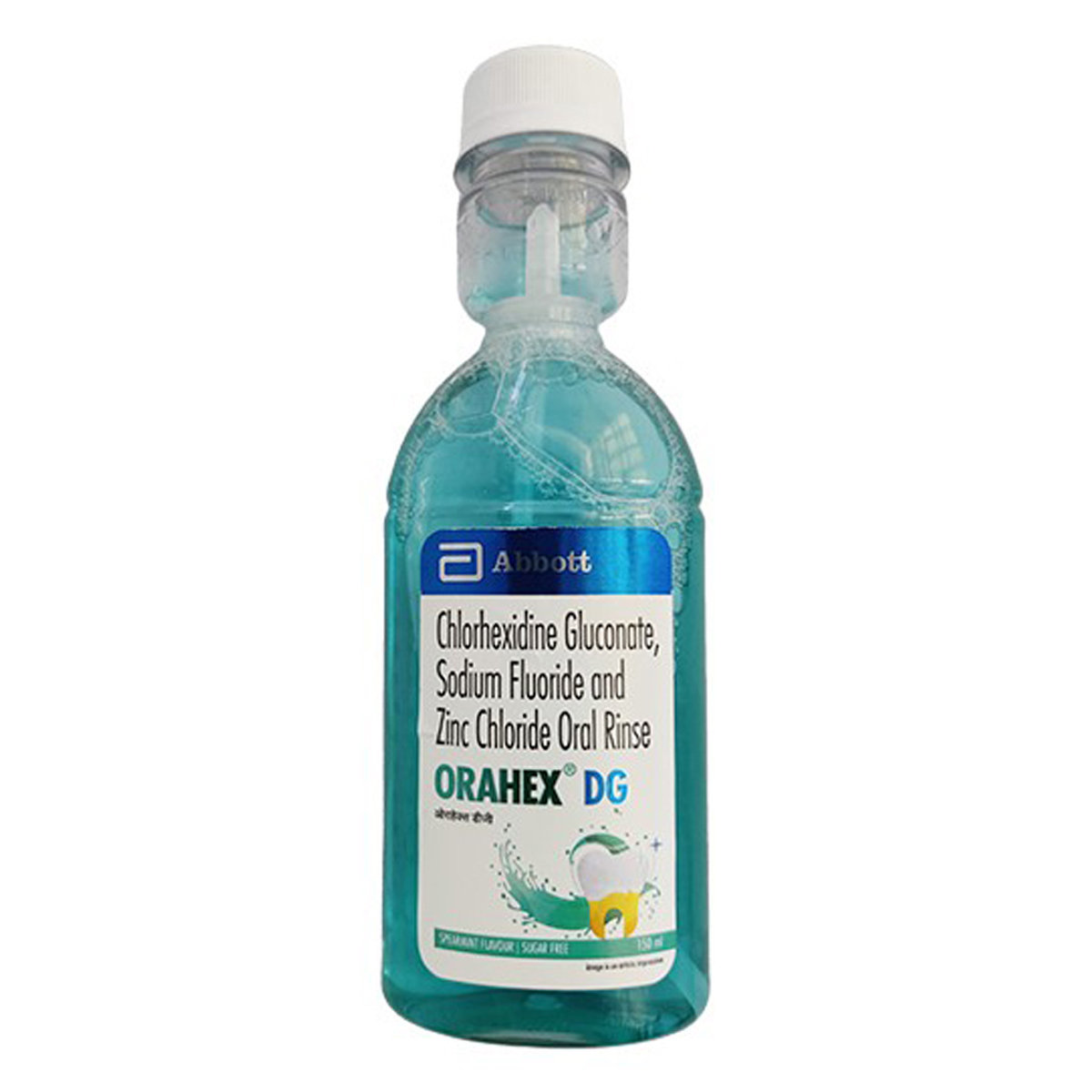Sensowash Mouthwash 100 ml


MRP ₹84
(Inclusive of all Taxes)
₹12.6 Cashback (15%)
Provide Delivery Location
Online payment accepted
 Prescription drug
Prescription drugWhats That
About Sensowash Mouthwash
Sensowash Mouthwash belongs to a class of medication called 'antiseptic' primarily used to treat gingivitis and oral mucositis. Gingivitis is the inflammation of gum caused by harmful bacteria if left untreated can lead to periodontitis. This can cause the gum to separate from teeth leading to loss of teeth. Oral mucositis is tissue swelling in the mouth.
Sensowash Mouthwash contains Chlorhexidine, sodium fluoride, and zinc chloride. Chlorhexidine is an antiseptic. It works by binding to the surface of teeth, inner cheeks and gums. This kills the infectious microorganisms that cause gum disease, ulcers, and other mouth infections. Sodium Fluoride works by making the teeth stronger and preventing decay (cavity) caused by bacteria. Zinc Chloride has an antiseptic (prevents the growth of microorganisms), and astringent action (tightening of soft organic tissues).
The most common side effects of Sensowash Mouthwash are staining of teeth, taste change, hard dental plaque in some cases. Most of these side effects do not require medical attention and gradually resolve over time. However, if the side effects are persistent, reach out to your doctor.
Inform the doctor if you are allergic to Sensowash Mouthwash . Inform the doctor if you are pregnant, planning to become pregnant, or are breastfeeding before starting Sensowash Mouthwash . After using Sensowash Mouthwash , do not drink tea, coffee, or smoke. At least maintain a gap of 1 hour. To maintain good oral hygiene, try to brush your teeth at least 2 times a day to avoid any oral infection and its spread. Sensowash Mouthwash can cause allergic reactions, leading to a sudden pressure drop. If you feel any such symptoms, immediately stop taking Sensowash Mouthwash and contact your doctor.
Uses of Sensowash Mouthwash
Directions for Use
Key Benefits
Sensowash Mouthwash contains Chlorhexidine, sodium fluoride and zinc chloride. Chlorhexidine is an antiseptic. It works by binding to the surface of teeth, inner cheeks, and gums. This kills the infectious microorganisms that cause gum disease, ulcers, and other mouth infections. Sodium Fluoride works by making the teeth stronger and preventing decay (cavity) caused by bacteria. Zinc Chloride has an antiseptic (prevents the growth of microorganisms), and astringent action (tightening of soft organic tissues). It is used in the treatment of gingivitis, oral mucositis and mouth odour.
Storage
Drug Warnings
Do not take Sensowash Mouthwash if you are allergic to Sensowash Mouthwash or any of its ingredients. If you are pregnant, planning to become pregnant, or are breastfeeding, please inform your doctor before starting Sensowash Mouthwash . In rare cases, Sensowash Mouthwash can cause allergic reactions, leading to a sudden pressure drop. If you feel any such symptoms, immediately stop taking Sensowash Mouthwash and contact your doctor. Sensowash Mouthwash contains aspartame, which can cause unpleasant side-effects in people with phenylketonuria. After using Sensowash Mouthwash , do not drink tea, coffee, or smoke, so try to maintain at least a gap of 1 hour. Sensowash Mouthwash use can cause the stain on teeth which can be removed from most tooth surfaces by conventional professional prophylactic techniques. To maintain good oral hygiene, try to brush your teeth at least 2 times a day to avoid any oral infection and its spread.
Diet & Lifestyle Advise
- Staining can be reduced by reducing tea, coffee, and red wine and brushing with toothpaste daily before using the gel.
- Intake of probiotics, prebiotics, and plenty of fluids is recommended to maintain a good bacteria level.
- Maintain good oral hygiene to avoid infection from spreading.
- Regular dental checkups can help in preventing the progression of the infection.
Side Effects of Sensowash Mouthwash
- Staining of teeth
- Taste change
- Hard dental plaque
Habit Forming
Therapeutic Class
All Substitutes & Brand Comparisons
RX
Out of StockSensoseal Mouth Wash 100 ml
Torque Pharmaceuticals Pvt Ltd
₹45
(₹0.45/ 1ml)
40% CHEAPERRX
Out of StockDentasep-F Mouthwash 100 ml
Stedman Pharmaceuticals Pvt Ltd
₹65.5
(₹0.66/ 1ml)
13% CHEAPERRX
Out of StockAmayzing Mouth Wash 100Ml
Nectar Lifesciences Ltd
₹77
(₹0.69/ 1ml)
9% CHEAPER
Product Substitutes
FAQs
Sensowash Mouthwash contains Chlorhexidine, sodium fluoride, and zinc chloride. Chlorhexidine is an antiseptic. It works by binding to the surface of teeth, inner cheeks, and gums. This kills the infectious microorganisms that cause gum disease, ulcers, and other mouth infections. Sodium Fluoride works by making the teeth stronger and preventing decay (cavity) caused by bacteria. Zinc Chloride has an antiseptic (prevents the growth of microorganisms), and astringent action (tightening of soft organic tissues).
Common side effects of Sensowash Mouthwash include staining of teeth, taste change, hard dental plaque in some cases. Most of these side effects do not require medical attention and gradually resolve over time. However, if the side effects are persistent, reach out to your doctor.
Yes, Sensowash Mouthwash effectively reduces bad breath but for the short term (about 3 hours). However, the risk of teeth stain and taste alteration should be kept in mind before you start Sensowash Mouthwash .
No. You should complete the full course of Sensowash Mouthwash as recommended by your doctor. After completing the full course of Sensowash Mouthwash will work. You must take Sensowash Mouthwash at the right dose, right times and for the right number of days.
Yes, though it occurs in rare cases, Sensowash Mouthwash can stain your teeth. It is not permanent, and it disappears when you stop using Sensowash Mouthwash . Brush your teeth properly can help to prevent staining. Also, avoid drinks that contain tea and coffee.
Special Advise
- Use of Sensowash Mouthwash may cause temporary discolouration of the teeth or tongue, which can be removed by twice-daily brushing with Sensowash Mouthwash or consulting your dentist.
- Avoid drinking beverages like tea or coffee and smoking, especially up to 1 hour after using Sensowash Mouthwash .
- Children under 12 years of age should not use Sensowash Mouthwash until and unless recommended by a dentist or doctor.
Disease/Condition Glossary
Gingivitis: It is a periodontal or gum disease with swollen and bleeding gums caused in response to bacterial biofilms (also called plaque) that is attached to tooth surfaces. If left untreated, which can lead to periodontitis and eventually loss of teeth. Its signs and symptoms include bleeding from gums, swollen gums, a loose tooth, and sometimes foul oral smell. Fusobacterium, Lachnospiraceae, Lautropia, Prevotella oulorum, and Rothia dentocariosa are some harmful bacteria that cause dental and gum problems.
Oral mucositis: Oral mucositis refers to erythematous, erosive, and ulcerative lesions of the oral mucosa. Symptoms include sores in the mouth, gums or tongue.

Have a query?
Buy best Dentistry products by
Indoco Remedies Ltd
Dr Reddy's Laboratories Ltd
Group Pharmaceuticals Ltd
Icpa Health Products Ltd
Abbott India Ltd
Mankind Pharma Pvt Ltd
Nextgen Healthcare
Vasu Organics Pvt Ltd
Leeford Healthcare Ltd
Morepen Laboratories Ltd
Stedman Pharmaceuticals Pvt Ltd
West Coast Pharmaceuticals Pvt Ltd
Macleods Pharmaceuticals Ltd
Micro Labs Ltd
Sandika Pharmaceuticals Pvt Ltd
Glenmark Pharmaceuticals Ltd
Intas Pharmaceuticals Ltd
J B Chemicals & Pharmaceuticals Ltd
Lupin Ltd
Med Manor Organics Pvt Ltd
Om Biotec
Pharmadent Remedies Pvt Ltd
Qualimed Bioscience
Wings Pharmacuticals Pvt Ltd
Across Laboratories Pvt Ltd
Agrawal Drugs Pvt Ltd
Anchal Life Science Pvt Ltd
Aureate Healthcare
Biozinik Healthcare Pvt Ltd
Chem Med Pharmaceuticals
Cipla Ltd
Dentigrity Formulations Llp
Elder Pharmaceuticals Ltd
Entod Pharmaceuticals Ltd
Fortel Life Sciences
Frimline Pvt Ltd
Galpha Laboratories Ltd
Global Dent Aids Pvt Ltd
Idem Health Products Pvt Ltd
Ipca Health Products Ltd
Ipca Laboratories Ltd
Lincoln Pharmaceuticals Ltd
Medishri Healthcare Pvt Ltd
Purexa Global Pvt Ltd
Raptakos Brett & Co Ltd
Sky Ora Care
Somatico Pharmaceuticals Ltd
Stanbac Life Sciences
Wockhardt Ltd
Aimcad Biotech Pvt Ltd
Ajanta Pharma Ltd
Alkem Laboratories Ltd
Apex Laboratories Pvt Ltd
Atopic laboratories Pvt Ltd
Ben Hadded Pharma Pvt Ltd
Bennet Pharmaceuticals Ltd
Cubit Healthcare
Daris Biocare
Dey's Medical Stores (Mfg) Ltd
Dupen Laboratories Pvt Ltd
Dwd Pharmaceuticals Ltd
Elder Projects Ltd
Fitwel Pharmaceuticals
Fourrts India Laboratories Pvt Ltd
Geno Pharmaceuticals Pvt Ltd
Graciera Pharmaceuticals Llp
Icpa Lab
Jupiter Pharmaceuticals Ltd
Karvia Laboratories Pvt Ltd
Magnum Life Sciences Pvt Ltd
Makshi Healthcare Pvt Ltd
Nexgen Healthcare Pvt Ltd
NuLife Pharmaceuticals
Panacea Biotec Ltd
Pariza Healthcare
Smart Laboratories Pvt Ltd
Suncare Formulations Pvt Ltd
Symbiosis Pharmaceuticals Pvt Ltd
U & V Cancure Pvt Ltd
Unimarck Pharma India Ltd
Unison Pharmaceuticals Pvt Ltd
Wafture Healthcare Pvt Ltd
Wembrace Biopharma Pvt Ltd
Win Medicare Ltd
Yash Pharma Laboratories Pvt Ltd
Zeelab Pharmacy Pvt Ltd
3M India Ltd
Acinom Healthcare
Admac Lifesciences(Oncology)
Adonis Laboratories Pvt Ltd
Aggarwal Chemical Works
Agim Scientific
Aksigen Hospital Care
Akumentis Healthcare Ltd
Alde Medi Impex Ltd
Alisier Drugs Pvt Ltd
Allenge India Pharma
Alniche Life Sciences Pvt Ltd
Alpinia Biopharma Pvt Ltd
American Biocare
Alcohol
Safe if prescribed
Limit consumption of alcohol while using Sensowash Mouthwash
Pregnancy
Consult your doctor
Sensowash Mouthwash is a pregnancy risk category B. It is not known whether it will harm the baby. So, take it only if recommended by a doctor and if risks outweigh the benefits.
Breast Feeding
Consult your doctor
It is not known whether Sensowash Mouthwash passes through breastmilk. So, breastfeeding women should take Sensowash Mouthwash only if recommended by a doctor.
Driving
Safe if prescribed
Sensowash Mouthwash does not cause any effect on driving a motor vehicle.
Liver
Consult your doctor
Sensowash Mouthwash can be given in case of any liver impairment. However, please consult your doctor before taking Sensowash Mouthwash if you have liver problems.
Kidney
Consult your doctor
Sensowash Mouthwash can be given in case of any kidney impairment. However, please consult your doctor before taking Sensowash Mouthwash if you have kidney problems.
Children
Safe if prescribed
Children under 12 years of age should not use the Sensowash Mouthwash unless recommended by a healthcare professional








